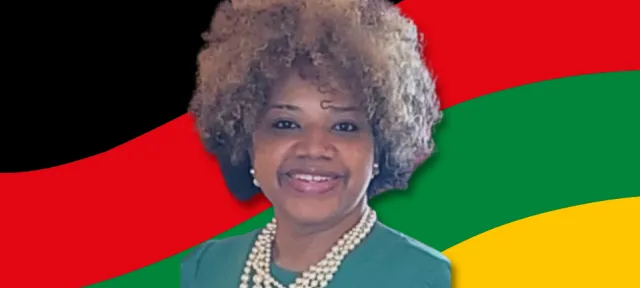This month we celebrate Black History. As many know, Black History Month is celebrated every February for 28 days. Seemingly, it is the shortest month of the twelve on the calendar therefore it is important for me to do my best given the time to do so, to share the two things that I hold dear, ----being Black and being a Social Worker, hence being a Black Social Worker.
As I reflect on my preparation for becoming a social worker, I must admit I do not recall being taught about Black Pioneers in Social Work. Certainly, it was not listed in the textbooks, references, journals or articles. In sincerity, when I did learn about Black Pioneers in social work, it was by word of mouth from other Black Social Workers who would mention “the GREATS” as they would refer to them. The “GREATS” were those black social workers who laid the foundation for us as Social Workers not just Black Social Workers but for all who have chosen this profession to help others.
When I was asked to write a blog for our Master of Social Work (MSW) program, my first thought was to write about Ida B. Wells, who is known as the founder of modern-day social work. Wells was known for the work that she did in social justice and her advocacy that led to anti-lynching crusades in the United States in the 1890s. She also fought alongside many other women for woman’s rights. Ida B. Wells is also the co-founder of the National Association for the Advancement of Colored People (NAACP). Her work will always serve as a foundation for our profession.
However, after careful reflection, I thought it best to write about a pioneer that is not often talked about outside of Louisiana but is one who should be in the history books. A pioneer in social work that I had the opportunity of knowing, learning from, and being in the presence of, Millie M. Charles. For those who have never heard of “Dean Charles”, she was the founder and creator of the school of social work at Southern University in New Orleans. Dean Charles was a committed activist for social change and produced thousands of social scientists and inspired social workers to create a “more equitable” social and political New Orleans.
During the years of segregation and Jim Crow, Dean Charles held true to her belief in equity, equality, justice, and diversity, long before DEI became a “thing” to say. She was a systems change advocate and a community based social worker who promoted social justice. Dean Millie Charles earned countless recognition and accolades throughout her years. She became a reviewer for the Council on Social Work Education, founder of the National Association of Black Social Workers (NABSW) and was named as the social worker of the year by the National Association of Social Workers in 1975. In 2018, the school of social work building was named and dedicated in her honor. It is now called the Millie M. Charles School of Social Work. This was magnificent and historic as she was still alive to witness this honor.
On a more personal note, I am humbled to have had the opportunity to call her my Dean. She would walk the halls at Southern University at New Orleans and she would know us all by our names. She would always tell us to stay the course and reinforced that we knew who we were----Social Workers. In times such as these as we continue to fight for social justice, equity and equality, I often think of her words, her fight and her persistence. It is one thing to read or write about history or herstory, but it is truly an honor to have witnessed it and to be personally taught by it. It is because of Dean Millie M. Charles, one of the GREATS, that I am a Black Social Worker all 365 days.
Learn More About Our MSW Program
* Bureau of Labor Statistics (BLS), U.S. Department of Labor, Occupational Employment and Wage Statistics 2023 / Occupational Outlook Handbook 2022. BLS estimates do not represent entry-level wages and/or salaries. Multiple factors, including prior experience, age, geography market in which you want to work and degree field, will affect career outcomes and earnings. Herzing neither represents that its graduates will earn the average salaries calculated by BLS for a particular job nor guarantees that graduation from its program will result in a job, promotion, salary increase or other career growth.




